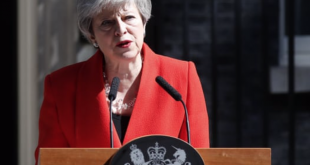By Philip Butterworth-Hayes
The decision by British prime minister Theresa May to continue the ban on flights by UK-registered airlines to Sharm-el-Sheikh seems increasingly inexplicable to many in the airline, travel and tourist industries.
The official reason given by the UK’s Foreign and Common Office (FCO) for UK travellers not using the airport is concern over airport security following the crash on 31 October 2015, of a flight from Sharm el Sheikh to St Petersburg.
“As a precautionary measure, we are advising against all but essential travel by air to or from Sharm el Sheikh. We are not raising the threat level in the resort. The above advice applies only to air travel to and from Sharm el Sheikh. We will continue working with the Egyptian Authorities to enable regular flights between the UK and Sharm el Sheikh to resume. We are also liaising with travel companies so that they are able to resume flights and holidays in Sharm el Sheikh as soon as appropriate security arrangements are in place.”
As reported earlier in the Times of Egypt (“Sharm el Sheikh and the politics of aviation security”) at an all-party parliamentary meeting to discuss the issue on October 21, UK parliamentarians reported that there were no “show stoppers” in terms of security issues – according to the UK Department of Transport official based at the airport. This is not surprising given the many millions of dollars which have been invested by the Egyptian government on new security systems and procedures developed in coordination with the UK government and consultants.
The fact that other European countries have lifted the ban on flights to the airport has made the position of the UK government increasingly difficult to understand. European governments and airlines normally pass information on aviation security concerns but the UK seems to be acting unilaterally in this case, suggesting it has intelligence sources other countries do not have.
The sparsely worded advice from the FCO on the matter is in sharp contrast to advice given to UK travellers to Tunisia, which is explicit in its reasoning for a flight ban. “Since the terrorist attack in Sousse in June 2015, we have been working closely with the Tunisian authorities to investigate the attack and the wider threat from terrorist groups in Tunisia. Although we have had good co-operation from the Tunisian government, including putting in place additional security measures, the intelligence and threat picture has developed considerably, reinforcing our view that a further terrorist attack is highly likely. On balance, we do not believe the mitigation measures in place provide adequate protection for British tourists in Tunisia at the present time.”
It seems highly probable that there are more issues than simple airport security challenges involved in the decision not to fly to the important Egyptian resort airport. One issue could be the lack of progress in identifying suspects who could have planted the bomb on board the Russian Metrojet Airbus, killing all 224 passengers and crew. But suspects were still being sought 30 years after the bombing of Pan Am Flight 103 that killed 270 people in 1988 after a suitcase bomb exploded over the town of Lockerbie in Scotland.
Over the years, UK airlines backed by UK national security agency advice have been remarkably gung-ho in flying to destinations other countries have preferred to avoid.
In July 2014, following a number of rocket launches from Gaza which landed close to Tel Aviv/Ben Gurion airport, the US government banned US airlines from flying to the airport and the European Aviation Safety Agency recommended EU airlines followed this ban. Most EU airlines cancelled services there but British Airways, which had made its own security assessment, was one of the few that continued to fly to the airport.
Terrorists killed 45 people and injured more than 230 people at Istanbul airport at the end of June 2016 but the airport re-opened five hours after the attack. A coup attempt in Turkey on July 15 led to the deaths of more 300 people and 2,100 injured – British Airways was back in Istanbul just a few days later. So why aren’t UK airlines flying to Sharm-el-Sheikh?





